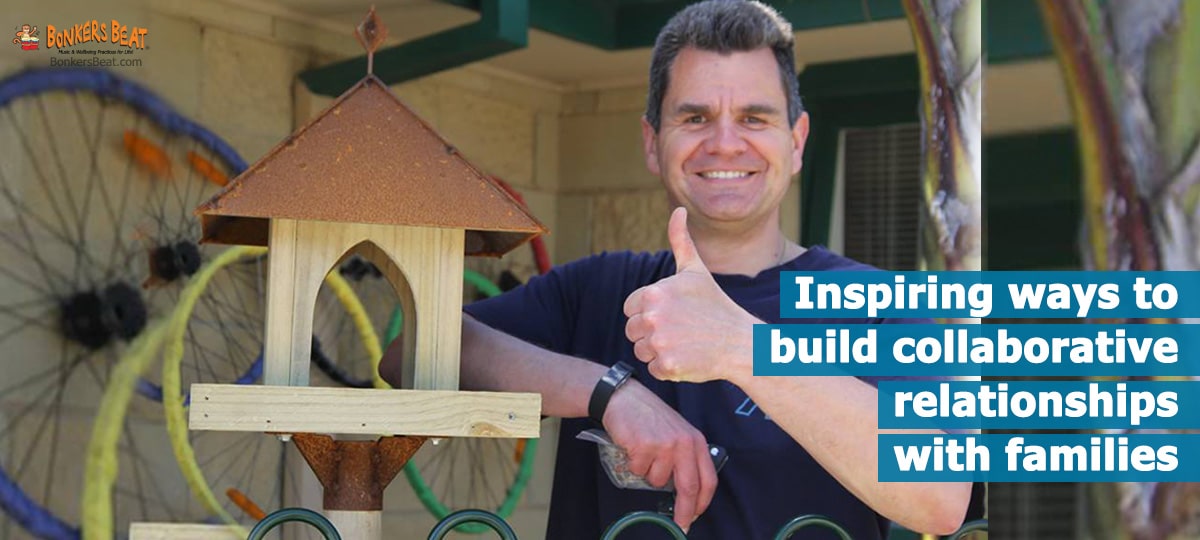In a busy, fast-paced world, to involve families with your centre when they are already juggling children, work, home duties and many other commitments can be a complex challenge. On one hand, we all understand being time poor, but we also know the positive impact collaborative relationships between centres and families can have on children’s outcomes.
The National Quality Standard has a Quality Area dedicated this very goal; Quality Area 6: Collaborative partnerships with families and communities. Here’s how it is officially defined as per the ACECQA website:
The aim of Quality Area 6 under the National Quality Standard is to recognise that collaborative relationships with families are fundamental to achieving quality outcomes for children and those community partnerships that are based on active communication, consultation and collaboration are also essential.
So, what is a collaborative partnership?
Running events that parents come along to is great, but it’s not quite a collaborative partnership. To be collaborative with families and the community you need to create opportunities for them to contribute to the curriculum and have active input into children’s education at your centre. Thankfully, collaboration doesn’t have to be a huge time-consuming commitment for families.
Many centres continue to struggle with involving families in their Quality Improvement Plan or decision making, but it can be done – and it doesn’t have to be as challenging as you might think. Let’s explore some ways you can inspire families and communities to work with you and your centre.
Simple ways to inspire collaboration
Not only will developing collaborative partnerships contribute positively to children’s outcomes, they can also play a role in the success of your centre and help you achieve an Excellent Rating under the NQS. In fact, services must be able to demonstrate that they provide exceptional education and care in a minimum of three of these six areas
- Collaborative partnerships with professional, community or research organisations
- Commitment to children that respects, reflects and celebrates culture and diversity, including place of origin
- Inclusive partnerships with children and families
- Positive workplace culture and organisational values
- Practice and environments that enhance children’s learning and growth
- Sustained commitment to professional development and support of educators.
Choose three that you want to focus on to get started. For Bonkers Beat, we have always been passionate about engaging families in the curriculum and empowering parents with reinforcing music and wellbeing practices at home.
Therefore, in the application for Excellent Rating, Bonkers Beat nominated three excellence themes, which are very close to our heart:
- Commitment to children that respects, reflects and celebrates culture and diversity, including place of origin
- Inclusive partnerships with children and families
- Practice and environments that enhance children’s learning and growth
What will your three focus themes be?
Once you’ve chosen them, these are simple and achievable ways to start creating some meaningful collaborative partnerships with parents and your centre’s local community:
- Active events
Social events like a family fun evening, family picnic, movie night, sports event, attending community festivals, or even try a working bee. Not just events where families come and watch. We want it to be collaborative and active rather than passive. A working bee, for example, gets everyone working together — planning, learning and being productive while having fun! Working bees are a fantastic way to bring people together in an active way. Here are some photos from our latest working bee.
- Effective feedback processes
In addition to fostering an open line of communication with families which is a must, actively ask for their opinions and feedback on a variety of topics. Before making a decision, where possible try to get families involved in the process.
- Ask for input into the curriculum
Maybe you’re celebrating a cultural date or want to open a discussion about a certain country? Send a note home or post on your service’s Facebook group to invite families to participate by speaking to the children about their culture. Want to talk about different jobs people have? Ask families if they can come and talk to children about their career.
How do you promote collaborative relationships with families at your centre? Share with us on Facebook and let’s continue to inspire one another to deliver the best education possible.





